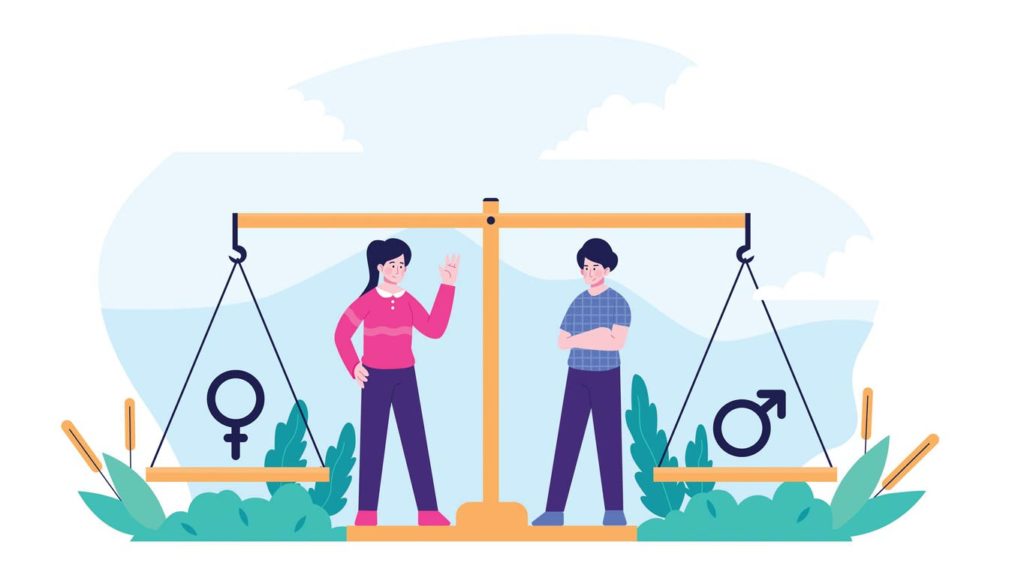In a world of interlocking crises, climate change, political polarization, anti-rights movements and conflicts, the SDG Summit in September 2023 reminded us of the need to step up our efforts to achieve the Sustainable Development Goals (SDGs), highlighting the crucial role of gender equality, cutting across the 17 SDGs.
No crisis is gender blind and women and girls, especially from the most marginalized communities, are disproportionally affected. Nevertheless, women make an enormous contribution to the solution given their role both as environmental and community leaders and human rights activists.
Gender equality is not just a goal within the 2030 Agenda, it is a goal which is the foundation for all other goals. SDG 5 aims to address structural inequalities faced by women and girls, breaking the barriers for them to fully participate in every aspect of society. Given their triple role (reproductive, productive, and community), unleashing and fostering the potential of women will fuel the path to the achievement of the 17 SDGs. The multiplier effect of the SDG 5 accelerates the drivers of economic growth and sustainable development, meaning that sustainable development cannot be achieved without gender equality for women and girls in all their diversity.
However, halfway to 2030, the world is failing women and girls and the 2030 Agenda as a whole is in peril. Deeply rooted discrimination against women and girls persists, leading to inequalities especially in the areas of political participation, access to sexual and reproductive health, economic empowerment, and legal protection.
On the other hand, insufficient data is making it more difficult for researchers to monitor the progress made by the indicators under SDG 5. According to UN Women’s and UNDESA Gender Snapshot 2023, 41 countries, on average are at “target met or almost met” or “close to target” on at least one SDG 5 indicator. Meanwhile, more than 80 countries, on average, are missing data for at least one of the SDG 5 indicators. Globally, no SDG 5 indicator is at the “target met or almost met” level. Ensuring women and girls are equally represented within decision-making processes, promoting and enforcing laws that promote gender equality and non-discrimination and building a world free from violence against women and girls, are key targets under the SDG 5 that remain challenges for all of us.
Based on available data for 120 countries, 54% of countries and areas do not have all relevant laws in place in any of the four areas under SDG indicator 5.1.1, on laws to promote, enforce, and monitor equality and non‑discrimination on the basis of sex. The gender gap in power and leadership persists with women’s political representation in local governments and parliaments remaining, despite progress, below 40%. Moreover, no country has successfully eliminated gender-based violence.
Every year, 245 million women and girls aged 15 and older are subjected to intimate partner violence, and one in five young women is married before turning 18. Challenging social and harmful norms, as well as allocating enough human and financial resources to prevention and immediate response, are crucial to address it.

Particularly, an additional $360 billion per year is needed to achieve gender equality and women’s empowerment across crucial SDGs, including to end poverty and hunger. At the current rate, 340 million women and girls will be living on less than $2.15 a day by 2030. Progress needs to be made 26 times faster to reach the no-poverty goal for women and girls.
Older women face higher rates of poverty and violence than older men. This year’s Gender Snapshot Report has a special focus on them.
Older women enjoy universal access to pensions in only 56% out of 116 countries with data, and in 12 of them, fewer than 10% had access to a pension.
When a milestone for gender equality and sustainable societies has just been adopted through a resolution in the United Nations General Assembly (UNGA), the International Day of Care and Support (29 October) emerges as an opportunity to acknowledge the disproportionate share of unpaid care and domestic work by women and girls, but is also an occasion to recognize the crucial role of older women in society, including in providing care to younger generations and other relatives.
Care is the foundation of every society, and by 2050 women and girls will still be spending 9.5% more time per day on unpaid care work than men. At the current pace, progress towards a fairer division of labor will be too slow to achieve the target by 2030.
The International Day of Care and Support will be an opportunity for all Member States, UN agencies and civil society organizations to raise awareness and scale up investments in care policies, jobs, services, and infrastructure required for an equal and gender-sensitive redistribution of unpaid care and domestic work.
However, only 26% of countries globally have systems to track budget allocations for gender equality, but gender-sensitive budgets remain crucial to accelerate the path towards SDG 5 and the 17 SDGs by extension.
The closer we get to 2030, the higher the cost.
We need to act now. Prioritizing women and girls facing overlapping forms of discrimination, including by investing in data and innovative research and analysis, and collectively and intentionally committing to guarantee equal rights, opportunities, and representation is the only way possible to achieve all the SDGs.



